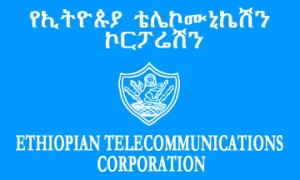City Profile: Addis Ababa, Ethiopia
This is the fifth post in a series that intends to examine the ICT environment in large metropolitan areas of Africa that receive relatively little publicity and lack ICT framework. These cities are often overshadowed by Cape Town, Johannesburg, Nairobi, Accra, and Lagos but still have a bright future – albeit with a few additional hurdles to clear. Next we look at the East African city of Addis Ababa, Ethiopia. Yichalal! (It can be done!)
Ethiopia, located in East Africa, has not adopted the Internet like neighbors Kenya and Rwanda. For example, a goal of the Connect Africa Summit in 2007 was to interconnect all African capitals by 2010 with fibre-optic broadband. Addis Ababa has not achieved this feat. For one, Ethiopia has a relatively unsuitable government for the adequate growth of ICT. For one, Prime Minister Zenawi’s ruling party controls the media. State-ownership of the telecommunications industry, although expand services to rural areas, will most likely limit ICT growth. Still, Ethiopia has shown a fast-growing annual GDP and it was the fastest-growing non-oil-dependent African nation in 2007 and 2008.
First, a look at the most recent population figures for Addis Ababa:
- 2.9 million (UN World Urbanization Prospects, 2009), other sources say 2.7-3+ million
- Top 15 African metro area in terms of population and by far the largest in Ethiopia
- Slightly lower population than Dar es Salaam or Algiers
An in-depth search of the Internet turns up a limited number of ICT endeavors and reports from the past few years. Most revolve around the University’s steps to network its campuses, but recently, efforts have been made to connect the landlocked nation to undersea fiber optic cables. Anyway, out of the limited public information available on the Internet, here are some important points of information to know about Addis’s ICT progress:
- There is a high demand for IT professionals.
- Addis Ababa has the highest number of NGO’s in Africa.
- The unemployment rate in Addis is low according to the Nazret.com (8% of the population in Addis Abeba are currently unemployed)
- A general problem about Internet in Ethiopia is the unstable international high-speed connection. If it is not working, even broadband cafes only delivers Dial-Up speeds and less.
- The local definition of highspeed broadband is 128kbits. Another general problem is the shortage of electricity, forcing daytime blackoutd of whole areas 1-2 days a week, so it is good to plan ahead where you are going for internet access.
- During the winter months of 2009 (Jun-Aug), electricity had gone off on one side of the city for one day, and another side for the next.
- Skype and similar services are forbidden by the government. According to local press, Ethiopia today have the fourth worst internet in the world.
- 3G available.
- Source: {http://wikitravel.org/en/Addis_Ababa}
- Addis Ababa University campus wired via fiber optic network: 3 hubs on campus ultimately connected to the national backbone through a dedicated leased line
- 2006 case study for local e-governance in Addis Ababa
- 2008: Hotels have broadband, some cafes have 128kbs, housees have dial-up.
- Broadband takes 1 year to get installed.
- Map of Internet cafes
- Source: {http://www.addismap.com/internet-cafes}
- Free Wi-Fi at Bole International Airport starting in November 2010.
- 2005: ICT at AAU case study
- Four campuses form core network and remaining are connected by VPN provided by ETC.
- 6Mbps bandwidth, 1,000 staff members have e-mail accounts.
- Low pay for ICT staff, lack of appreciation of the role ICT plays in the university.
- Source: {ICT at the Addis Ababa University – A Case Study, Moges Delelegn, AAU, Sept 2005 http://event-africa-networking.web.cern.ch/event-africa-networking/workshop/slides/case%20addis%20ababa.doc}
- ETC signed a deal with SEACOM for an international backhaul link via Djibouti, had offers from SEA-E-WE 3, TEAM, EASSy.
- US$1.5 billion Next Generation Network program to improve infrastructure.
- Source: {http://www.itnewsafrica.com/?p=6300}
- Currently ETC uses satellite but has a broadband connection to Port Sudan.
- Limited speed of 895 kb/s
- 2007: WoredaNet Initiative to connect all of Ethiopia’s local councils to 11 regional capitals by cable and satellite.
- SchoolNet Ethiopia has 181 schools equipped with at least 15 networked computers all connected to the Internet.
- Distance learning with India.
- Amharic program for computing in Ethiopian language.
- Most infrastructure is confined to Addis.
Positive signs:
- SEACOM deal for broadband
- Critical mass of enthusiasm
- Large population could mean better deals for connectivity and investment interest
- Connected university to set an example
Challenges:
- State-controlled telecoms
- Corrupt elections which could prevent regime & policy change
- Ethiopian schools have seen 500% increase in enrollment since 1990 and face challenges
- Landlocked location
- Extremely diverse number of languages makes computer use and instruction more difficult
- Expanding Internet access to rural areas that lack infrastructure and financial stability













 Twitter
Twitter Facebook
Facebook Pinterest
Pinterest